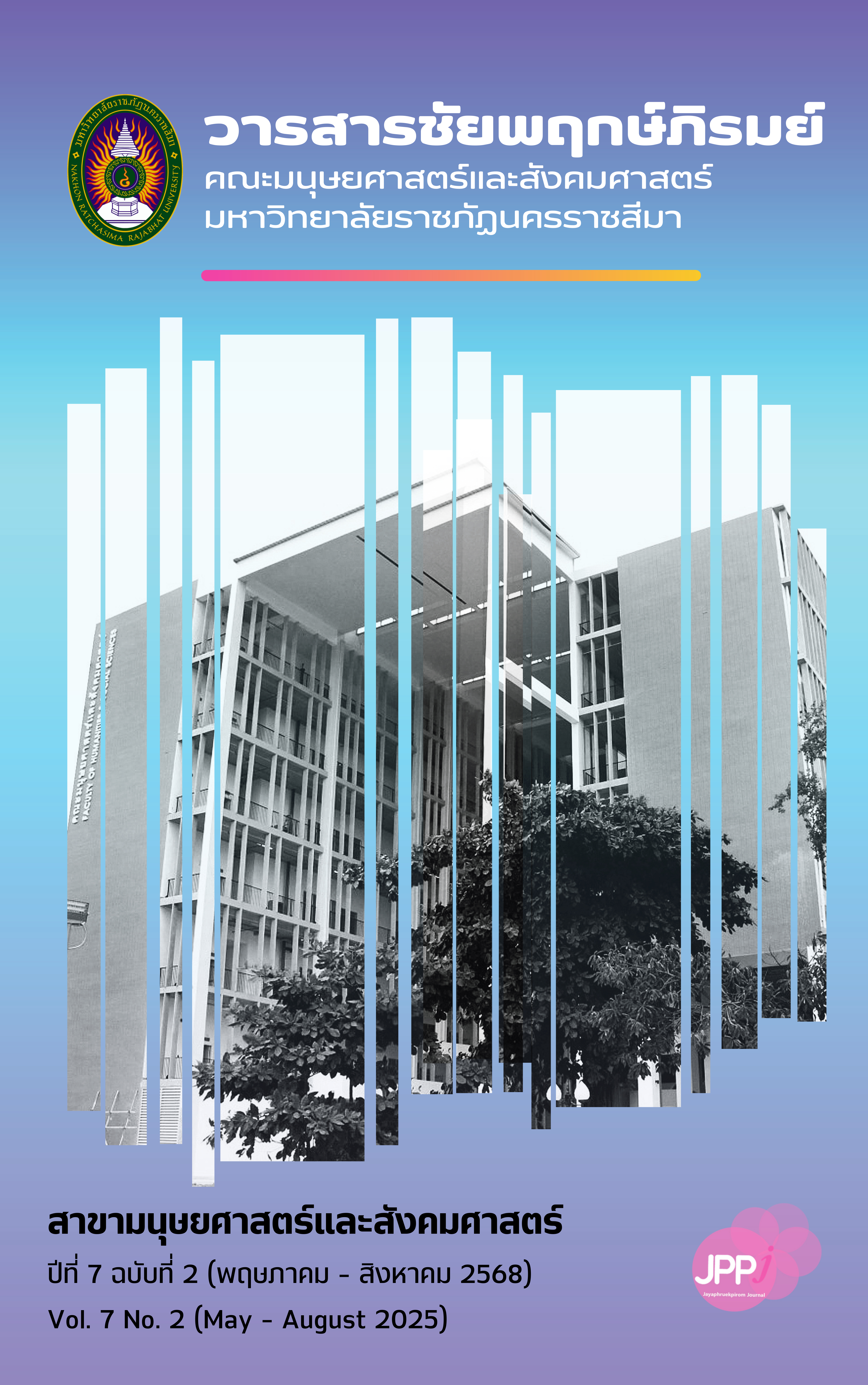Overview of the Volunteer Teacher Camp for Rural Development, Faculty of Education, Nakhon Ratchasima Rajabhat University: Developing Teacher Characteristics Through the Volunteer Teacher Camp Activities
Keywords:
Volunteer Teacher Camp for Rural Development, Teacher Characteristics, Identity of Faculty of Education GraduatesAbstract
The Volunteer Teacher Camp for Rural Development, organized by the Faculty of Education, Nakhon Ratchasima Rajabhat University, is an important activity for developing the characteristics of teachers for teacher graduates. It focuses on enhancing both academic and professional skills through a comprehensive process, which includes working with the community, building relationships between schools and communities, cultivating ethics and moral values, and fostering the spirit of teaching. Teacher education students participating in the camp will gain hands-on experience, helping them understand the role and responsibilities of teachers in society, especially in rural and remote areas.
This Volunteer Teacher Camp is implemented systematically, following a step-by-step process that includes planning, operation, monitoring, and evaluation to ensure the effectiveness of the activities and allow for continuous development. Additionally, it brings benefits to the university, the Faculty of Education, and the local community. The activity promotes cooperation between the university and the community, leading to development in various areas such as local education, culture, and economy. The Volunteer Teacher Camp is thus an important tool for developing the characteristics of quality teachers who are ready to respond to societal changes and play a role in creating a good and peaceful society by instilling ethics and moral values in students, enabling them to apply these skills effectively and sustainably in their future careers.
References
กรรยา พรรณณา. (2559). จิตสาธารณะ สร้างได้นิดเดียว. กรุงเทพฯ: สำนักพิมพ์แห่งจุฬาลงกรณ์มหาวิทยาลัย.
คณะครุศาสตร์ มหาวิทยาลัยราชภัฏนครราชสีมา. (2567). เอกสารสรุปกิจกรรมค่ายครูอาสาพัฒนาชนบทครั้งที่ 18. นครราชสีมา: ฝ่ายกิจการนักศึกษาและศิษย์เก่าสัมพันธ์ คณะครุศาสตร์ มหาวิทยาลัยราชภัฏนครราชสีมา.
ชนัญชิดา ทิพย์ญาณ. (2564). การให้ความหมายพฤติกรรมจิตอาสาและกระบวนการขัดเกลาสังคมที่เสริมสร้างพฤติกรรมจิตอาสาของนักศึกษา มหาวิทยาลัยราชภัฏสุราษฎร์ธานี. วารสารสังคมศาสตร์และวัฒนธรรม, 5(2), น. 36-52.
ทัศนีย์ ผลเนืองมา. (2552). เสริมสร้างคุณลักษณะและจริยธรรมด้วยกิจกรรมพัฒนาผู้เรียน. กรุงเทพฯ: สำนักพิมพ์แห่งจุฬาลงกรณ์มหาวิทยาลัย.
เนาวนิตย์ สงคราม. (2557). การศึกษานอกสถานที่และการศึกษานอกสถานที่เสมือนเพื่อการเรียนรู้เชิงรุก. กรุงเทพฯ: สำนักพิมพ์แห่งจุฬาลงกรณ์มหาวิทยาลัย.
เรืองชัย ทรัพย์นิรันดร์. (2544). ราชภัฏ: มหาวิทยาลัยของประชาชน. กรุงเทพฯ: สำนักพิมพ์มติชน.
สำนักงานคณะกรรมการการอุดมศึกษา และ มหาวิทยาลัยเชียงใหม่. (2555). นวัตกรรมการเรียนรู้ผ่านกระบวนการกิจกรรมนิสิตนักศึกษา. เชียงใหม่: มหาวิทยาลัยเชียงใหม่.
หทัยภัทร ตังกุลา และอัญญรัตน์ เชิงค้า. (2563). รูปแบบการสร้างจิตอาสาอย่างสร้างสรรค์เพื่อความเป็นพลเมืองที่ดีของสังคมไทย. วารสารสันติสุขปริทรรศน์, 1(1), น. 52-67.
สมศรี ฐานะวุฒิกุล และคณะ. (2556). กลยุทธ์การพัฒนาจิตสาธารณะของนักเรียนในสถานศึกษาขั้นพื้นฐานระดับปฐมศึกษา. วารสารศึกษาศาสตร์มหาวิทยาลัยนเรศวร, 15(2), น. 45-57.


